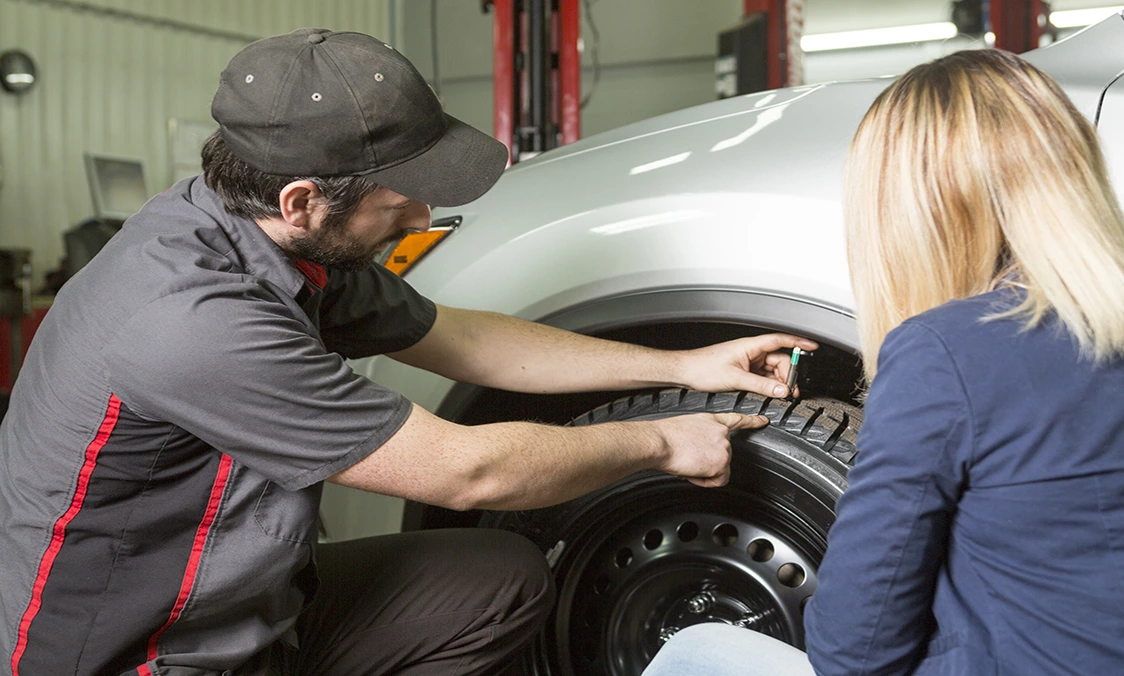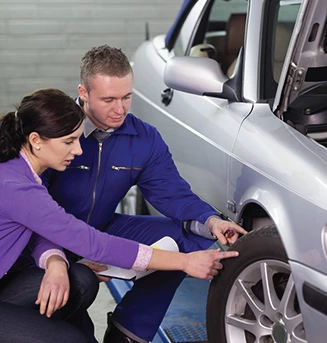Slipping into Fall (Driving with ABS Brakes)
March 10, 2024
As the weather changes over from hot to colder, drivers will have to deal with more slippery streets. And it's important to know how to drive with the brakes you have on your vehicle.
In the 1970s, anti-lock braking systems (ABS) started to be installed on vehicles and they've been a game changer for drivers. Most modern vehicles have ABS and it's important to know how to drive with them.
In older vehicles without ABS, the driver applies the brakes by pushing down the pedal. That, in turn, sends braking pressure to all four wheels at once. But all four tires don't have the same traction because the road surface they're each on isn't exactly the same.
ABS allows sensors to determine when particular wheels are slowing down more quickly. The ABS then reduces braking pressure to the wheels that are about to lock up. That way the wheel turns and the tires keep some grip. (You have to have grip to stop.) It's kind of what drivers try to achieve when they pump the older-style brakes without ABS.
Another engineered feature of ABS is that it makes sure your front wheels will continue to rotate and maintain some traction. That's important because the front wheels are used to steer, and being able to steer gives a driver more control in a quickly-changing situation. So ABS is all about stopping as fast as the road surface will allow but at the same time enabling the driver to maintain control.
ABS is designed for the driver to put steady pressure on the brake pedal and let the vehicle’s computerized system handle the braking. Pumping the pedal in a vehicle with ABS can defeat what the system is trying to do to help you maintain control.
Because stopping techniques in a vehicle with ABS are different than those without, it’s important to know which brakes you have so you can operate them accordingly.
If you have any doubt, consult your service advisor. ABS involves sophisticated technology and must be maintained in order for it to work properly. Your service advisor can recommend a maintenance schedule for you to follow so your ABS is always on the ready to help you stop when you need to.
TLC Custom Exhaust Brakes & Tires
1735 N Main St
Royal Oak, Michigan 48067
248-541-8300
http://www.tlcautocareroyaloak.com
Need Service?
More articles from TLC Auto Care

Let's Clear Some Things Up (Headlight Restoration)
January 25, 2026
You know how exposing your skin to sunlight can cause sunburn and other unhealthy things. Sunlight can also create major problems for your headlights. After they've been exposed to ultraviolet light, acrylic headlights can yellow and fog due to oxidation. And when that happens, less light can ... More

A Most Important Part (Serpentine Belt Replacement)
January 18, 2026
Your vehicles engine is an engineering work of wonder with many complex parts working in harmony to get you down the road. One of those simple but important components is called a serpentine belt. It is driven by a pulley on the engine and transfers that power to many of your engines most importa... More

Conventional or Synthetic? (Switching to Synthetic Oil)
January 11, 2026
If you keep up on technology trends, then you may be intrigued about synthetic motor oil. It was introduced in the 1960s when Mobil came up with it. Mobil's oil was different from conventional motor oil because it was first broken down to its basic molecules. Then, Mobil removed additional imp... More










